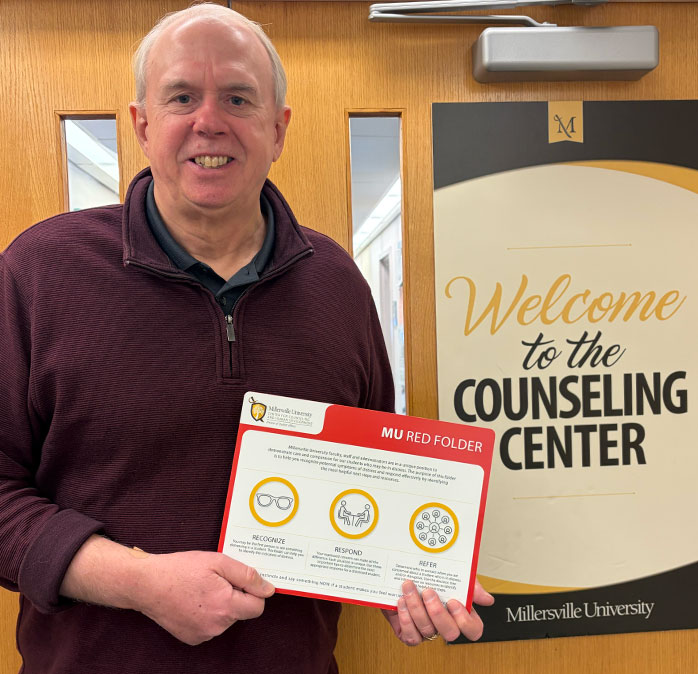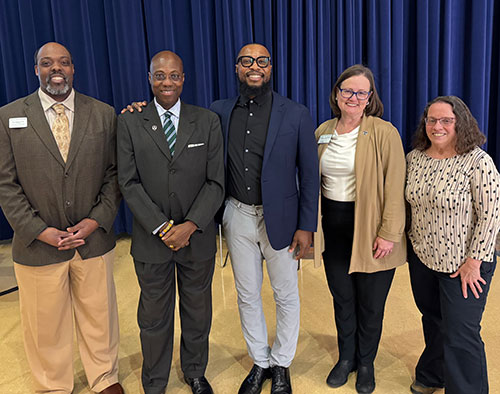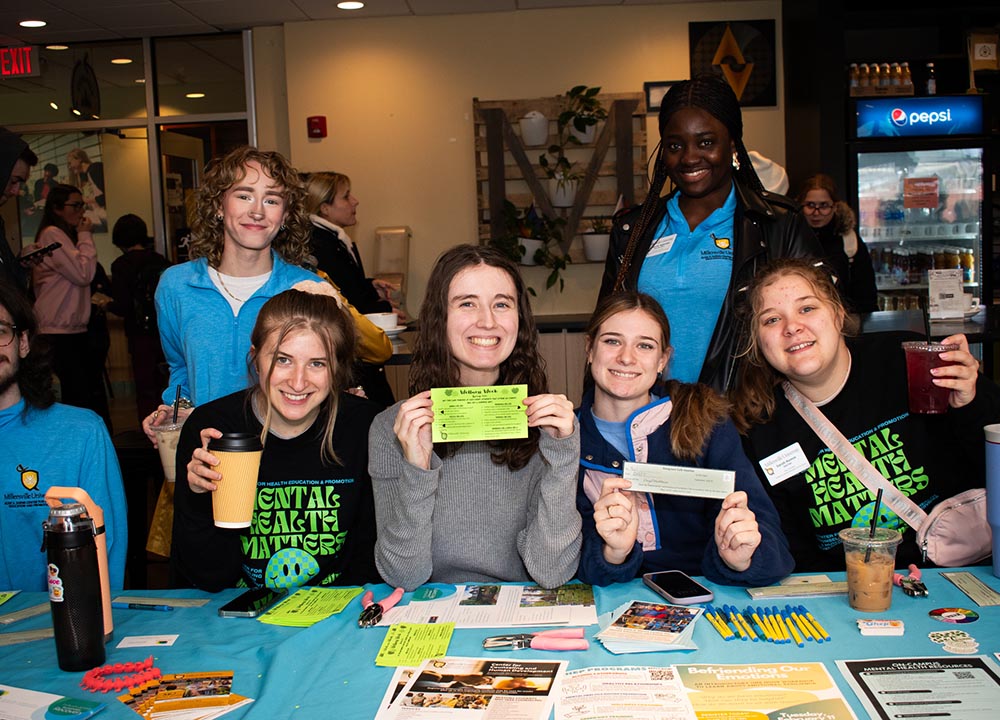President's Monthly Newsletter
February 2026

As we reach the midpoint of the spring semester, I am reminded that the strength of our university is not measured only in sunny days and smooth operations, but in how we respond to challenge. The persistent winter weather has tested our systems and schedules in ways we have not experienced in recent years. Yet, in true Marauder fashion, our community responded with resolve, professionalism and care.
In moments like these, our EPPIIC values are not aspirational words – they are lived commitments. We have demonstrated Excellence in maintaining academic continuity, Public Mission in keeping our campus safe and operational, Professionalism in every adjustment made behind the scenes, Inclusion in supporting one another through disruption, Integrity in our decision-making and Compassion in caring for students whose routines were unsettled. I extend my deepest appreciation to MUPD and our facilities, dining and residence life teams who ensured that students were supported. I am equally grateful to our faculty and staff for their flexibility, and to our students for their resilience.
Next week, I will represent Millersville University before the Pennsylvania State Senate Appropriations Committee. The presidents of IUP, ESU and WCU will be on the panel with me. My message will be clear: Investing in Millersville is investing in Lancaster County and in the economic vitality of the Commonwealth. As a regional public university, we are a workforce engine that prepares educators for local school districts, nurses and healthcare professionals for regional hospitals, business leaders and entrepreneurs for our growing industries, and scientists and technologists who strengthen Pennsylvania’s innovation ecosystem.
State funding is not simply an allocation line but rather a strategic investment in access, affordability and regional competitiveness. Continued and enhanced support for PASSHE ensures that talented students, many from right here in southcentral Pennsylvania, can pursue high-quality degrees without unsustainable debt, and then remain in our region to contribute to its prosperity. I plan to advocate thoughtfully on behalf of our students, our employees and the communities we serve.
Looking ahead, March and April will bring two important milestones as we welcome admitted students and their families on March 21 and April 18. These days are more than recruitment events; they are invitations into a community defined by opportunity, belonging and purpose. They allow us to demonstrate who we are – a university deeply connected to Lancaster County, committed to student success and focused on preparing graduates to lead in a rapidly evolving world.
With spring break just ahead and warmer days in sight, I encourage each of you to take time to renew your energy. The second half of the semester will be full of momentum and progress. Together, guided by our EPPIIC values and united by our public mission, we will continue to advance Millersville University as a place of excellence, impact and enduring promise.
 Film and Filmmaker Series Breaks the Silence on Asian American Mental Health
Film and Filmmaker Series Breaks the Silence on Asian American Mental Health
We are very fortunate to have award-winning filmmaker Dr. Changfu Chang – whose documentaries have explored themes of adoption, belonging and Chinese diasporic life – as a member of our faculty.
 MU Adopts Red Folder Initiative to Help Students in Distress
MU Adopts Red Folder Initiative to Help Students in Distress
We must be diligent about caring for our students experiencing mental health struggles. The Red Folder will help faculty, administrators and staff identify situations where additional crisis resources may be needed to provide students with the help they need.
 MU Hosts Feb. 24 Talk on Tulsa Race Massacre
MU Hosts Feb. 24 Talk on Tulsa Race Massacre
The University hosted an interesting presentation on the Tulsa Race Massacre by a University of Oklahoma professor. This public event, in addition to a number of others for our students, honored February as Black History Month.
 University Theatre to Present ‘The Good Doctor’
University Theatre to Present ‘The Good Doctor’
University Theatre will present Neil Simon’s “The Good Doctor” in March. Seating is limited for this Broadway hit, so get your tickets early and enjoy the talents of our student actors.
 Center for Health Education and Promotion Recognized by PA State Athletic Conference
Center for Health Education and Promotion Recognized by PA State Athletic Conference
The Center for Health Education and Promotion and its director, Margo Thorwart ’17, were recognized for promoting unity and equity through their work with our student-athletes.
 MU Alum, COT Chair Named as Government Relations Honorees
MU Alum, COT Chair Named as Government Relations Honorees
Michael Warfel ’84, chairman of Millersville’s Council of Trustees, and Michael Barley ’04, chief public affairs officer for Pace-O-Matic, were recognized for their work in government affairs.
-
Past Updates
2026
2025
2024
- December 2024
- November 2024
- September 2024
- June/July 2024
- May 2024
- March/April 2024
- February 2024
- January 2024
2023
- December 2023
- November 2023
- October 2023
- September 2023
- July 2023
- May 2023
- April 2023
- March 2023
- February 2023
- January 2023
2022
- December 2022
- November 2022
- October 2022
- September 2022
- July/August 2022
- May/June 2022
- April 2022
- March 2022
- February 2022
- January 2022
- December 2021
- November 2021
- October 2021
- September 2021
- July 2021
- May/June 2021
- April 2021
- March 2021
- February 2021
- January 2021
- December 2020
- November 2020
- October 2020
- September 2020
- July 2020
- May 2020
- April 2020
- February 2020
- January 2020
- December 2019
- November 2019
- October 2019
- September 2019
- July 2019
- May 2019
- April 2019
- March 2019
- February 2019
- January 2019